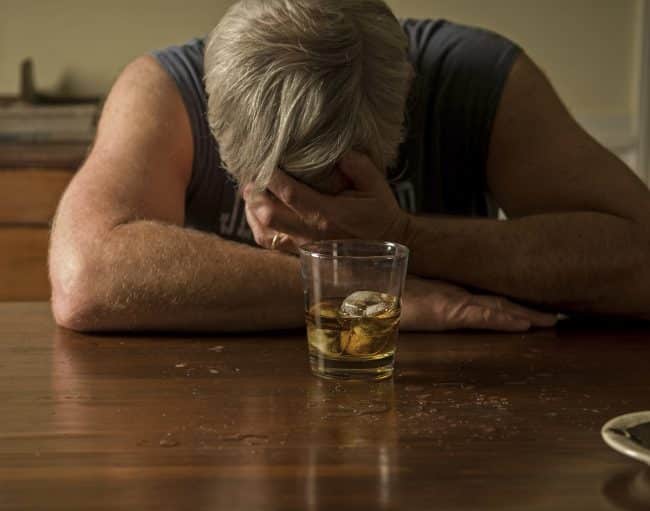Elderly Resources for Drug and Alcohol Treatment
When picturing drug addiction, the elderly are rarely the first group of individuals that come to mind. However, there are many issues with drug and alcohol abuse in the older generation than people understand. There are many challenges of growing older, physical and mental well-being, family and social dynamics change, and there is more assistance needed than what most people deal with in their more youthful years. If you add drug and alcohol abuse to this combination it is lethal- and this is something family members and loved ones overlook with the older population.
Currently in the US right now there are over 2.5 million elderly individuals struggling with drug and alcohol issues according to the NCADD. Even with these statistics, the help for the older generations are lacking. To get our senior citizens the help needed, it is important to understand how and why the elderly use medications and which treatment programs are appropriate for them and their age group. Recovery is more than possible for every person at any age.
Drug Abuse Among the Elderly
There are so many risks of drug abuse and addiction for any age but especially for those in the older generations. As individuals grow older there is more of a need for prescription drugs, vitamins, and over the counter medications- many of which can be harmful for the body and can cause addiction. The processing of medication declines significantly as the body ages, so the elderly are much more at risk to develop addiction with the smallest doses.
How Do Seniors Become Addicted to Substances?
The older generations are prescribed medications for almost everything that is wrong with their physical health. Drugs impact the elderly more than adults and teens for a variety of reasons:
Being prescribed multiple drugs simultaneously
Having multiple prescriptions at once
Increased medication sensitivity and slower metabolism
Multiple health conditions (Heart disease, blood pressure, dementia…etc)
Long-term use of psychoactive medications
High levels of chronic pain
High levels of sleep and anxiety disorders
Increased rates of surgical procedures
Tendency to over self-medicate
Cognitive levels declining
Medical professional misdiagnosis
Drinking while taking prescription drugs
The Elderly and Alcoholism
As a regular vice or coping mechanism, alcohol is the most commonly abused drug among adults age 65 and over. According to the National Council on Alcoholism and Drug Dependence (NCADD), widowers aged 75 and older have the highest rate of alcoholism in America.
The American Geriatrics Society and the National Institute for Alcohol Abuse and Alcoholism recommends that those over the age of 65 drink no more than seven standard drinks (like a 12 oz. beer or 5 oz. glass of wine) per week. At-risk drinking (more than three drinks on one occasion or more than seven per week) is more common among the elderly than alcohol use disorders (AUD). While binge drinking is less widely noted in this age group, heavy drinking is often underreported, and alcoholism in elderly adults is frequently overlooked by medical staff and family members.

Signs of Alcohol Abuse in Older Adults
When it comes to the elderly and alcohol abuse, there are several signs that may indicate the presence of alcohol addiction, including:
Bad self-care
Gastrointestinal issues
Recurrent falls or other injuries
Unstable hypertension
Gastrointestinal issues
Many medical issues
Many visits to the emergency room
Outbursts of anger or increased irritability
Random changes in behavior
Estrangement from friends and family
Drinking before, during or after meals
As bodies get older, the harder it is to process alcohol. If elderly individuals drink while prescription drugs, there are many harmful things that can happen. If you have noticed signs of alcoholism in a loved one, withdrawal symptoms can be deadly. Alcohol treatment is needed for the best health of your loved one.

Elderly Prescription Drug Abuse
That statistics that go along with the older population are shocking when it comes to prescription drugs. Elderly aged 65 of age and older consume almost 40% of all the medications prescribed in the country. SAMHSA estimates that 30% of individuals between the 57 and 85 use at least five prescription medications. 25% of the prescriptions are psychoactive medications that should not be prescribed these highly addictive medications, and they’re often prescribed much longer than what normal timeline of the prescription should be.
Signs of Prescription Drug Abuse in the Older Population
Having a supply of “extra” pills on them
Making excuses for needing extra meds
Hiding medication from family or loved ones
Negative changes in mood or behavior
Appearing confused or forgetful
Filling a prescription for the same medication at different pharmacies
Getting a prescription for one medication from several doctors
Appearing confused or forgetful
Becoming defensive when asked about their medication
Taking a higher dose of medicine than instructed
Disregarding warning labels on pill bottles
Taking pills at unusual times during the day
Addiction Treatment for Elderly Drug and Alcohol Abuse
It is important to seek professional addiction treatment care for your family or loved one if any of the above stands out to you. Most are unaware of their addiction issues and may not even know the amount of pills or alcohol they are taking on a daily basis. The struggle of drug addiction is hard to come to terms with as a loved one. If you continue to notice uncharacterised behaviors, the time to seek help is now.
At The Best Treatment Center, we can help adults of all ages get the proper treatment care needed to face their addiction. We meet every guest where they are in their recovery journey and offer individualized care for all guests.

